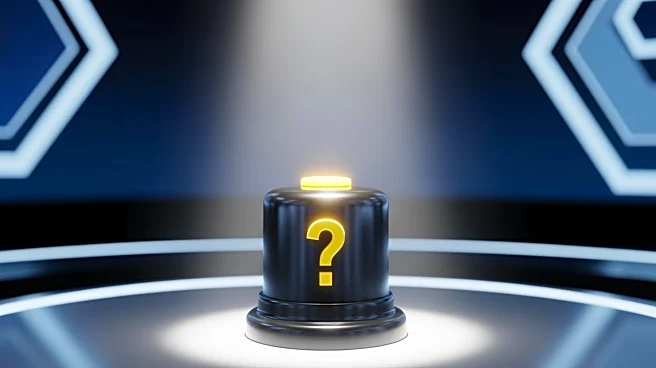What's Happening?
Ken Jennings, the host of 'Jeopardy!', issued an apology following backlash over a clue that referenced the internet meme John Pork. The clue, which appeared in an episode aired on October 24, described
John Pork as an AI-generated image, which upset some fans. John Pork is a fictional character depicted as an anthropomorphic pigman, popular on platforms like Instagram and TikTok since 2018. The clue was part of a category titled 'Daddy Is There Really A…' and left contestants baffled, with none providing the correct answer. Jennings admitted his confusion during the show and later addressed the issue in a TikTok video, acknowledging that while AI is used in much of John Pork's content, the original character may not have been AI-generated.
Why It's Important?
This incident highlights the challenges faced by traditional media in engaging with internet culture and memes, which often have complex and evolving backstories. The backlash underscores the sensitivity of audiences to inaccuracies, even in seemingly trivial contexts like game shows. For 'Jeopardy!', a show known for its intellectual rigor, maintaining credibility is crucial, and this apology reflects an effort to uphold that standard. The situation also illustrates the growing influence of internet culture on mainstream media, as memes like John Pork become part of broader cultural conversations.
What's Next?
Following the apology, 'Jeopardy!' and its producers may become more cautious in incorporating internet culture into their content. This could lead to more thorough vetting of clues that reference online phenomena. Additionally, the show's engagement with its audience on platforms like TikTok suggests a strategy to connect with younger viewers who are more familiar with internet memes. The response from fans and the media will likely influence how 'Jeopardy!' approaches similar content in the future.
Beyond the Headlines
The incident raises questions about the intersection of traditional media and digital culture. As memes and internet lore become more prevalent, media outlets must navigate the complexities of these narratives to avoid misrepresentation. This case also highlights the potential for humor and engagement in addressing such missteps, as seen in Jennings' lighthearted apology. The evolving relationship between media and internet culture may lead to new forms of storytelling and audience interaction.










